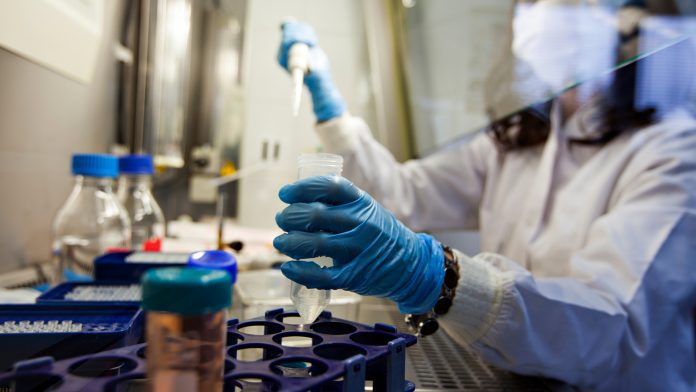
The University of Oxford has begun recruiting for a Phase I trial to test an Ebola vaccine in human volunteers against Zaire and Sudan species of Ebola. The first vaccinations took place on Thursday, 11 November.
The Ebola virus disease (EVD) is a severe disease that can be deadly, with an average fatality rate of around 50%, according to the World Health Organization (WHO). It affects both people and nonhuman primates such as monkeys and manifests itself through sudden onset illness with symptoms such as a fever, sore throat and intense weakness being prominent. In the UK, there is currently no licensed treatment or Ebola vaccine for infected patients.
The University of Oxford will be assessing the immune response and safety of the new Ebola vaccine against healthy individuals. Professor Teresa Lambe OBE, Associate Professor at the Jenner Institute and Lead Scientific Investigator, University of Oxford, said: “The 2014-2016 Ebola virus disease outbreak in West Africa cost more than 11,000 lives and had a catastrophic effect on healthcare systems. Sporadic Ebolavirus outbreaks still occur in affected countries, putting the lives of individuals – especially frontline health workers – at risk. We need more vaccines to tackle this devastating disease.”
The development of the Ebola vaccine
The Ebola vaccine is based on the ChAdOx1 virus, a weakened version of the common cold virus (adenovirus) that has been genetically modified so that it is impossible for it to replicate in humans. This vector has been previously used successfully in the ChAdOx1 nCoV-19 vaccine – or the Oxford-AstraZeneca vaccine.
Dr Daniel Jenkin, Principal Investigator of the trial at the Jenner Institute, University of Oxford, said: “Recent advances have led to the approval of vaccines against one of the viruses that cause Ebola virus disease. However, this disease can be caused by several different species of virus and each of these may require a targeted immune response to offer protection. We have designed our new vaccine to target the two species of virus that have caused nearly all Ebolavirus outbreaks and deaths, and now look forward to testing this in phase I clinical trials.”
The study will be a planned sample of 26 healthy participants aged between 18 to 55 and will all receive one dose of the ChAdOx1 biEBOV vaccine at the university. Following vaccination, all contributors will be monitored through several visits over a six-month period, with results expected in the second quarter of 2022.
A further trial for the vaccine is planned to commence in Tanzania by the end of 2021.
Dr Paola Cicconi, Chief Investigator of the trial at the Jenner Institute, University of Oxford, said: “The need for a multivalent vaccine, approved for use against multiple Ebolavirus species, remains unmet. Experience with ChAdOx1 nCoV-19 (Oxford-AstraZeneca COVID-19 vaccine) has shown the vaccine can be rapidly manufactured at high volume for low cost, with storage conditions amenable to use in the developing world.
“This study will provide valuable data on the safety and immunological aspects of a novel multivalent Ebolavirus ChAdOx1 vaccine.”
The University of Oxford: a vaccine success story
The Jenner Institute is based within the Nuffield Department of Medicine at the University of Oxford. It was founded to design and develop innovative vaccines for diseases of major global importance such as malaria, HIV and tuberculosis. In more recent times, the University of Oxford collaborated with AstraZeneca to develop the ChAdOx1 nCoV-19 vaccine as a global response to the COVID-19 pandemic. The Ebola vaccine that the university has developed uses the same vector that was successfully used in the Oxford-AstraZeneca COVID-19 vaccine.

























